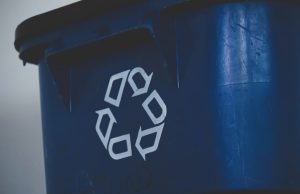The majority of people want to recycle and help protect the planet. However, it is easy to fall into the trap of wishcycling. For example, it can be tricky to tell if you are dealing with recyclable foils or non-recyclable composites. If you make a mistake, it can actually do more harm than good, resulting in resources going to waste. We want to have a closer look at it today, including some tips on how you can improve your recycling.
What is wishcycling?
 This is quite an interesting term. It basically means wishful recycling. What happens is people hope the materials they are sending to recycle are actually recyclable. However, they may be unsure or just assume it is okay. In some cases they even know things aren’t recyclable but put them in a recycling bin in the hope they don’t go to landfill.
This is quite an interesting term. It basically means wishful recycling. What happens is people hope the materials they are sending to recycle are actually recyclable. However, they may be unsure or just assume it is okay. In some cases they even know things aren’t recyclable but put them in a recycling bin in the hope they don’t go to landfill.
Wishcycling generally comes from the right place, but it can have a huge impact. Non-recyclable items, as well as recyclable items that are contaminated, can damage recycling machinery. Plus, they can ruin the quality of recycled products. So, if you really want to do some good, you need to be very careful with your recycling.
What to do?
The most difficult thing to do is manage mixed recycling, whether it is at home, at work, or in public spaces. You will probably be tempted to put everything in that you feel is recyclable. However, the chance of contamination or making a whole load non-recyclable is high.
One of the best tips is to separate everything. Even if you have a mixed recycling bin, try to keep different types of products separate. It’ll increase the chance of successful recycling. Most importantly, don’t cram everything together; it can make separation impossible, meaning all the resources go to waste. Get into the practice of separating rubbish, including any packaging that may contain recyclable foils.
Something you should do with every single product is check the label. You want to be thorough here; don’t just look for the symbols that say something is safe to recycle. Take the time to check closely. You may find a label says something is recyclable but can’t go into mixed recycling. It may need special disposal.
Next, be very careful with contamination. Different products can be recyclable, including aluminium food trays, drink bottles and cartons, and snack wrappers. However, food scraps, liquids, and grease can cause huge problems. What you should do is rinse, wipe, and empty everything. Don’t wishcycle and hope it will be okay to leave residue on anything. If you can’t get it clean, don’t recycle.
The trickiest things to deal with are composites. Some are recyclable, but others aren’t. It all comes down to how easy it is to separate the layers. If the bond is permanent, you can’t recycle. Always be careful with composite waste; check to see if it needs specialist recycling.
Speak to us about recyclable foils
While the intention is good, wishcycling can be very harmful to recycling companies and resources. Don’t fall into the trap; make sure you are careful with everything you send to recycle.
At Foiling Services, we can help businesses to make things easier on their customers. We have a great range of recyclable foils from the best producers in the world. Using them is better than traditional non-recyclable foil. They are thin and tend to dissipate during recycling, ensuring there is no negative impact on the machinery or recycled materials.
So, if you want a more sustainable solution for any products, including packaging, promo materials, and more, speak to us about foils.
